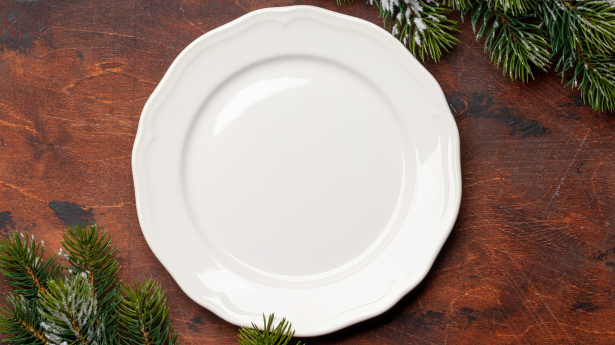While Christmas can be a fun and special time to celebrate with your friends or family, it’s also important to remember that sometimes, that’s always not the case. It can be a time of year that puts a lot of extra pressure on us, especially for students, and it can affect our mental health in lots of different ways.
Sometimes it can feel a little stressful, anxious, or overwhelming in the lead-up to and during the Christmas break. For some people, this time of year can be a lonely period. If the holiday season is a tough time for you, remember that you're not alone.
Although some services may be reduced or closed over Christmas, support is still available for you. You can reach out to our UBHeard service over the holidays or external support such as the Samaritans. Both services are free, confidential, and available 24 hours a day, 365 days a year.
On this page, you'll find other top tips on how to look after your mental and physical health, as well as advice and experiences from our students on how to keep your spirits up.

Looking after your mind and body
Take a break
You may have a busy social calendar or lots or revision and assignments to be working on but it's important that you use the holidays to switch off and relax. Whether it's a duvet day watching your favourite films (it doesn't have to be something Christmassy) or running a candle-lit bath, just taking some time out to recharge can really help with your mental health and wellbeing. Check out graduate Lucy's self-care tips if you need some inspiration.
Why not take a break from studying and explore some of the fun free activities happening on campus including a visit from Santa Claus (Father Christmas) and the University's annual Carol Service? You'll also be able to find lots to do in the city to lap up the festive vibes for those of you staying in Birmingham.
Ellen
Student Content Shaper
“A sure way to alleviate some stress is by visiting the annual Birmingham Christmas Market. You can find delicious food, fun decorations, and a guaranteed mood lift. Or, sometimes we just need a cosy night in to relax and recharge. Nothing screams Christmas more than hot chocolate and a film, my favourites include The Polar Express, The Grinch and Love Actually. A perfect way to lift your spirits!”
Prioritise sleep
Don't sleep on sleep! During the holidays, it can be difficult to stick to a routine but everything feels harder when you're tired. Try to get 7 to 8 hours of sleep each night. Give yourself at least 45 minutes before you sleep to wind down. Relax by reading a good book or listening to some calming music. As tempting as it can be to scroll mindlessly on TikTok when you get into bed (guilty!), try and avoid going on any electronics as the blue light emitted by devices can interfere with the production of the sleepy hormone, melatonin.
Keep active
The cold weather and shorter days can make it harder to motivate yourself to move your body but regular exercise can do wonders for our mood and physical health. Walking is one of the easiest ways to get more active and become healthier - and it's free. So, wrap up warm and plan a daily walk during the holidays - even if it's just for 15 or 30 minutes. Try setting yourself a challenge of walking a route you haven’t done before, maybe meet a friend or family member for some of it, or just have some time to yourself and listen to music or a podcast.
Don't want to leave the house to move your body? Graduate Ruaidhri shows you how to do a simple circuit in your bedroom - perfect if you're studying.
Keep warm
Christmas can be expensive, and rising costs have added extra worries. Our 'budget-friendly Christmas' page is full of valuable tips and resources to make your student budget stretch throughout the year. It's important for your health to keep your body warm over winter. If you're worried about heating bills, there are some cost-effective ways you can keep warm and well over the festive period:
- Invest in warm clothing - wearing several thin layers will keep you warmer than wearing one thick layer, as layers trap warm air between them. Clothing made from wool, fleece, thermals and cottons are good options to stop you feeling the chill. Buying base layers such as a long sleeved top or leggings are usually not very expensive but it's always worth looking at pre-loved/second-hand market places for jumpers and coats. Wearing thick socks and slippers inside will help trap the heat and keep your feet toasty.
- Use a hot water bottle - hot water bottles are a great way to keep warm without putting the heating on. They come in various shapes and sizes and can be bought in supermarkets or online stores such as Amazon for a few pounds. Although they are an affordable way to warm up, it's important that you use a hot water bottle safely to prevent burns and scalds.
- Make warming food and drinks - try to eat at least one hot meal a day to keep you warm and your immune system in check. In winter, a comforting bowl of steaming porridge oats is a good affordable breakfast option that you can keep in your cupboard. Beans on toast, pasta and soups can be good cost-effective lunch or dinner options. Look out for promotional offers on season vegetables such as carrots and potatoes. Drinking plenty of hot drinks throughout the day will also help with staying warm at home.
- Find a warm space - if you're struggling to keep warm at home, many spaces such as local libraries, religious buildings and community hubs offer a free, safe and warm environment where you can spend time in this winter. If you're on campus, our Main Library will remain open (reduced hours) has a festive lounge where you can make a hot drink or meal (boiling tap and microwave) watch TV, study or just chill. There is a warm welcome at main library throughout most of the vacation free Wi-Fi access, charging stations and central heating.
- Take part in festive fitness - our Active Residences programme offers a free programme of sport for those who live in halls. Everything from yoga to pilates, tennis and badminton. It's a great way to stay active, keep socialising and looking after your wellbeing.
Be kind to yourself
It might be the season of joy but if you're feeling anything but that, be gentle and patient with yourself and accept that your feelings are valid. It's okay to take time out this Christmas to look after yourself and priortise what you need to get through each day. Social media can make us feel like everyone else is having a great time, and that might make you feel more down. Just remind yourself that what you see on social media isn't real life - it's a snippet of someone's life showing the best bits. If this doesn't help, it might be worth limiting your time on socials or log yourself out for the festive period.
“Christmas can be an overwhelming time and there can be pressure to say yes to being social when you don’t feel like it. Don’t be afraid to say ‘no’ – it’s okay to put your mental health first, it doesn’t make you a bad person.”
Talk about your feelings
Talking to someone is often the first step to feeling better. It can help to talk to someone you trust like a family member or friend. Sharing your feelings with someone else can help you feel supported and less alone. Don't be afraid to ask for help if you need it to get through the festive season. You might feel more comfortable talking to someone you don't know very well. This could be your GP (doctor) or confidential helplines like UBHeard, the Samaritans or Mind. You can find more details of these services on our Time to Talk? page.
Coping with loneliness at Christmas
Whether you don't have family nearby, living on your own or estranged from your family, there are many reasons why you may experience loneliness during the holidays. And you won't be the only one feeling like this. There'll be lots of other students or people in the same boat as you.
Some of our tips above such as keeping active or talking to someone might help. It's also important not to isolate yourself further. Getting involved with activities on campus or in your local community can help you make new connections as well as having fun.
There are plenty of ways to stay in touch with people over the holidays. Why not video call a friend or loved one?
“The more people I spoke to, the less isolated I felt. Turns out, many others were feeling lonely and homesick too, and I wasn’t the only one feeling this way... Getting things off your chest can be liberating and knowing someone else may be going through the same thing can be helpful. Also, don’t always let social media fool you into thinking everyone else is living their best uni life. My one piece of advice would be please don’t hide behind the words ‘I’m ok’ like I did. Talk about what’s going on inside - it really is good to talk.”
Eating over the holidays
Christmas is known for many reasons, the presents, a time of togetherness, and especially the food. Given that the holiday revolves around food and eating, and often in group settings, it can be a very overwhelming and difficult time for people with eating disorders.

It might feel impossible to get away from food at this time of year, and it can be stressful or upsetting with the pressure to “indulge”. It may create additional pressure to eat or cause increased worry about bingeing.
If you’re experiencing the same feeling, the first thing to remember is that you’re not alone. There are many support services out there. You can always access different kinds of support by visiting our Time to Talk? intranet page, alternatively, you can read this blog by YoungMinds student bloggers Caitlin, Amy and Aimee on coping with an eating disorder at Christmas.
We hope you've found this page helpful. Look after yourselves, and have a restful festive season.
Do you have any more tips or advice on looking after yourself during the Christmas period? We'd love to hear it. Send us your tips by emailing the Student Communications Team at studentcommunications@contacts.bham.ac.uk.